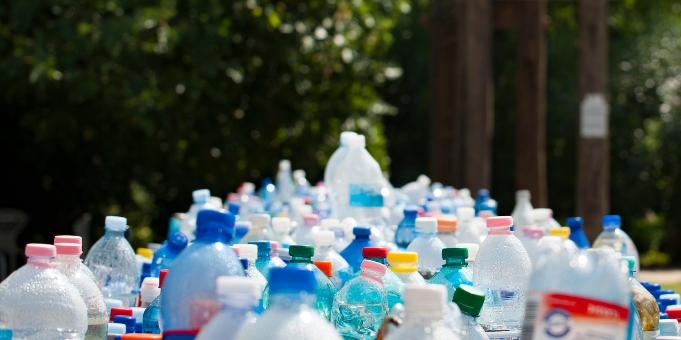Short answer: NO.
First off – we agree, plastics are complicated. The ubiquitous number inside a recycling symbol on plastic items is arguably the single greatest source of confusion for the recycling public. The number, known as the Resin Identification Code, indicates the type of plastic resin the item in question is made of. And that number appears on thousands of items – from blister packs to plastic storage bins to children’s toys and automotive parts – that CAN’T be recycled at most recycling facilities. The resin code is so misleading that California just passed a Truth in Advertising Law that prohibits the recycling symbol on anything deemed not recyclable (i.e. it can’t be conveniently collected and made into new stuff).
So how DO I know what plastic is recyclable?
The best rule of thumb is to forget about the numbers. Instead, focus on the shape: if it’s a bottle, jug, jar or tub, put it in the recycling bin. What’s pictured in the Smart Recycling Guide are examples of plastic containers you can recycle in Massachusetts. Of course, it wouldn’t be complicated if there weren’t exceptions (e.g., clear plastic cups, plastic egg cartons, and these specific take-out containers are all recyclable). These exceptions are spelled out in the Recyclopedia. So, if you have something you are unsure about, you know what to do. And if it’s not in the Recyclopedia, you can assume it’s NOT recyclable. Eager to learn more about plastics? Check out our archived newsletters on this topic:
- Let’s Talk About Plastic
- Let’s Talk About Plastic (part 2)
- Let’s Talk about Plastic: Are My Take-Out Containers All Trash?
Note: The best way to deal with plastic containers is to avoid purchasing items made with plastics. For example, the City of Newton permits the use of your own reusable take out containers at stores and restaurants. Be sure to check that the store or restaurant is ok with using your own containers.



Recently on Twitter